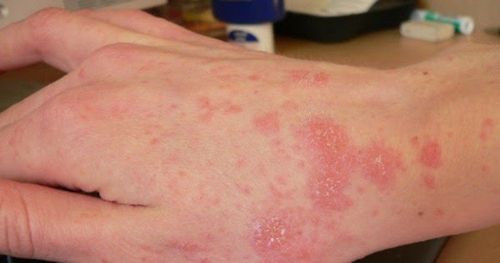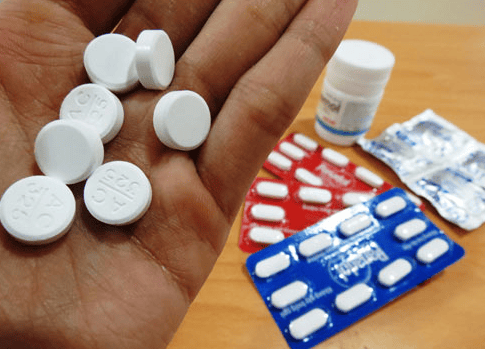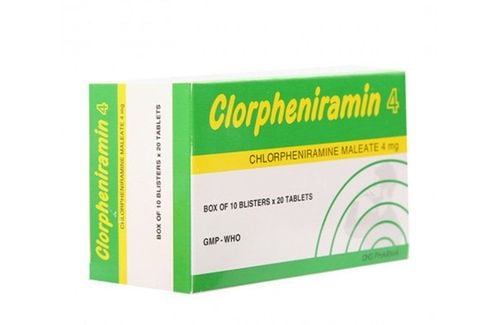This is an automatically translated article.
MSG is a food additive that enhances the flavor of dishes. Despite its widespread use, it has long been believed that MSG can cause allergy-like symptoms and side effects. So what are the signs of a MSG allergy?
1. The phenomenon of MSG allergy
Monosodium glutamate (MSG), known as monosodium glutamate/monosodium glutamate, is a flavor enhancer commonly added to many dishes, canned foods, soups, and processed meats. While the U.S. Food and Drug Administration (FDA) has classified MSG as a "recognized safe" ingredient (in the same group as salt and pepper), reports regarding the MSG allergy is still increasing every year. Specifically
A 2011 Nutrition study revealed a link between MSG and children with dermatitis, but further clarification is needed. In 2014, clinical nutrition research suggested a link between MSG and allergic reactions in a small group of people experiencing chronic hives. The majority of these reports involved mild symptoms, such as tingling skin, headache, and a burning sensation in the chest. Larger doses of MSG have also been found to cause similar symptoms. But almost all dishes and foods do not use such large quantities. Another animal study in 2014 also revealed that MSG consumption can lead to depressive-like behavior due to changes in serotonin - a neurotransmitter in the brain that affects mood and emotions. In 2015, a study was published that suggested that long-term consumption of MSG in animals led to kidney damage. In 2016, researchers found that any amount of MSG is genotoxic, causing damage to cells, including human lymphocytes (a type of white blood cell). , and genetic material. It is for this reason that the FDA requires MSG to be listed on the label if added to processed canned foods. In summary, despite many concerns, over decades of scientific studies have hardly proven a relationship between MSG and serious reactions after eating foods containing this ingredient.

Rất nhiều người người có hiện tượng dị ứng khi sử dụng bột ngọt
2. Signs of MSG allergy
When consumed in significant quantities, people who are sensitive to MSG may experience the following symptoms:
Headache ; Rash; Runny or stuffy nose; mild chest pain; Nausea, vomiting; Numbness or burning in the face, neck, and other areas, especially in and around the mouth; Tension or swelling of facial muscles; Sweat; Digestive disorders ; Mood swings; Tired. More serious MSG allergy symptoms may include:
Severe chest pain; heart palpitations ; Shortness of breath; Swollen throat; Anaphylaxis .
3. Diagnosis and treatment
If the doctor suspects a MSG allergy during their visit, they will collect information about all the foods the patient has eaten within the last 2 hours, especially foods that may be dangerous. contains MSG. In addition to the signs of MSG allergy mentioned above, abnormally fast heart rate or reduced airflow to the lungs are also symptoms that help confirm the diagnosis of MSG allergy.
Most MSG allergic reactions are mild and will go away on their own. For more severe symptoms, such as anaphylaxis, urgent treatment is needed with an injection of epinephrine (adrenaline).
Call your doctor and go to the nearest emergency room immediately if after eating you experience any of the following symptoms:
Difficulty breathing; swelling of the lips or throat; heart palpitations; Chest pain.

Dị ứng bột ngọt có thể gây đau đầu
4. Note for people who are allergic to MSG
The best treatment for people with food allergies in general is to avoid eating that food. However, the United States Department of Agriculture says MSG occurs naturally in virtually all foods. In particular, MSG is found in high doses in protein-rich food sources, such as:
Meat; Poultry; Cheese; Fish. Some other dishes that may also contain MSG in ingredients that people with MSG allergies should avoid include:
Dried meat, such as beef jerky, chicken jerky; Meat extract found in many products; Bone broth or poultry meat; Hydrolyzed proteins used as binders, emulsifiers or flavor enhancers; Partially hydrolyzed vegetable starch Maltodextrin (food additive); Modified starch (starch derivative). In general, people with an allergy or intolerance to MSG should avoid packaged and processed foods. Instead, choose natural sources such as fresh fruits, vegetables, and organic meats.
If you have a complicated medical history or are prone to allergies, you should also consider limiting MSG intake. You can test your body's response at home by trying a MSG-free diet and the foods to avoid. After removing certain foods from your menu for a while, you can add them back while paying attention to your body's reactions. This test works to help you pinpoint substances that are not suitable for you.
In a nutshell, MSG has been safely used as a food additive for decades. Although there are many reports of negative body reactions to foods containing MSG, researchers have yet to find clear evidence of a link between MSG and symptoms. thought to be a sign of MSG allergy . However, it is still undeniable that a small percentage of users may experience a short-term allergic reaction to MSG. In general, symptoms are mild and do not require treatment. The only way to prevent a reaction is to avoid foods suspected of containing MSG.
If you have unusual symptoms, you should be examined and consulted with a specialist.
Please dial HOTLINE for more information or register for an appointment HERE. Download MyVinmec app to make appointments faster and to manage your bookings easily.
Reference source: Healthline.com; Mayoclinic.org













